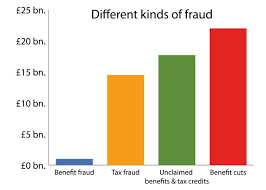DWP Plan To Bulk 'Spy' Into Bank Accounts In a Challenge to Civil Liberties
Sunday 25 October, 2020 Written by Simon Collyer, Scottish Herald
DWP - The Department for Work and Pensions want to find out if claimants are declaring their savings and they want to get bulk access to people’s bank accounts which is a major challenge to peoples civil liberties and the right to privacy.
As members of the European Union there was protection in the right to privacy.
Article 8 of the European Convention on Human Rights provides a right to respect for one's "private and family life, his home and his correspondence", subject to certain restrictions that are "in accordance with law" and "necessary in a democratic society".
The DWP are hoping new laws will allow them to obtain information on benefit recipients' bank accounts. There has been a surge in Universal Credit claimants this year due to the current pandemic and this has caused a surge in errors in the benefits system which rely on means testing,
For those with over £6,000 in savings this could see reductions in benefit and for those with more tan £16.000 no right to Universal Credit at all.
Undeclared or unnoticed savings has accounted for up to 30% of overpayments.
The DWP are hoping to obtain access to "bulk" bank data to prevent this.
A proposal was suggested at the Commons Work and Pensions Committee (October 21).
DWP Permanent Secretary Peter Schofield explained in the committee that the department wants to understand "whether [it] can get better access to data on bank account details."
Mr Schofield added: "We've had a proof of concept with a bank using some of our existing powers to enable us to access data on bank deposits. And that’s shown some pretty good results.
Explaining the idea to MPs, he added: "You could imagine a real-time information type system that every time you declare you don’t have capital, we could see whether or not you actually did."
The DWP’s definition of benefit fraud is when “someone obtains state benefit they are not entitled to or deliberately fails to report a change in their personal circumstances.”
The most common form of benefit fraud is when a person receives unemployment benefits, while working.
Another is when the receivers of benefits claim that they live alone, but they are financially supported by a partner or spouse.
Failing to inform the state about a "change of circumstances", for example, that your partner is now living with you, or that you have moved house, or that a relative has died, leaving you some money may also be fraud by omission.
Investigators can turn up at your address in plain clothes or at your place of work.
Common examples of benefits fraud include:
- faking an illness or injury to get unemployment or disability benefits
- failing to report income from a business or employment to make income seem lower than it actually is
- living with someone who contributes to the household income without declaring that income to the authorities
- falsifying accounts to make it seem like a person has less money than they say they do
- Fraud investigators have a wide range of powers that enables them to gather evidence in a number of ways, including surveillance, interviews, and document tracing.
Unfortunately, you will not know the exact details of an investigation against you until you are told
If the DWP is going to start a formal investigation against you, they will notify you either in writing, by telephone, or email - this is typically done through the post.
When you are notified, you will also be told whether you are to receive a visit from a Fraud Investigation Officer (FIO), or whether they require you to attend an interview.
In the early stages of an investigation, you may not be told that one is underway until the DWP has assessed whether there is good reason to formally investigate a potential case of fraud.
DWP investigators are allowed to gather many types of evidence against a potentially fraudulent claimant.
The most common types of evidence are:
- inspector reports from surveillance activities
- photographs or videos
- audio recordings
- correspondence
- financial data, including bank statements
- interviews with you or people you know
- any evidence submitted by those who reported you
One common form of benefit fraud is falsely reporting income, or failure to report it altogether.
If you’re claiming unemployment benefits but are seen to attend a workplace, the DWP may talk to the owner or manager of that business to find out exactly why you are there, what work you are doing and how much you are being paid.
DWP investigators can search your social media profiles
Investigators may also check your social media accounts and search your online profiles for pictures, location check-ins, and other evidence which may or may not be useful to them.
Those who use social media a lot will leave a trail of their life and habits, often allowing investigators to piece together a picture of what that person’s life actually looks like.
If this is not consistent with the details of that person’s claim for benefits, that evidence may end up being used against them.
False reports of benefit fraud are common in the UK, with some studies indicating there are around 140,000 made each year.
Between 2016 and 2018, the government received over 280,000 of such reports, but not a single one of them resulted in someone getting convicted. The primary reason for this was lack of evidence.
The government is aware of how serious a matter it is to be accused of swindling the system; not only would it mean that payments are stopped (which could jeopardise things as fundamental as feeding and clothing children) but it could also mean criminal consequences for the person accused, making it harder for them to find employment and educational opportunities.
Until the DWP determines that there is no case against you, there is little you can do. Co-operate as best as you can and remember that those found to have reported falsely through malicious reasons may end up being prosecuted.

ABC Comment, have your say below:

1 comment
-
Comment Link
 Sunday 25 October, 2020
posted by
Simon Collyer
Sunday 25 October, 2020
posted by
Simon Collyer
Leave a comment
Make sure you enter all the required information, indicated by an asterisk (*). HTML code is not allowed.
Join
FREE
Here










